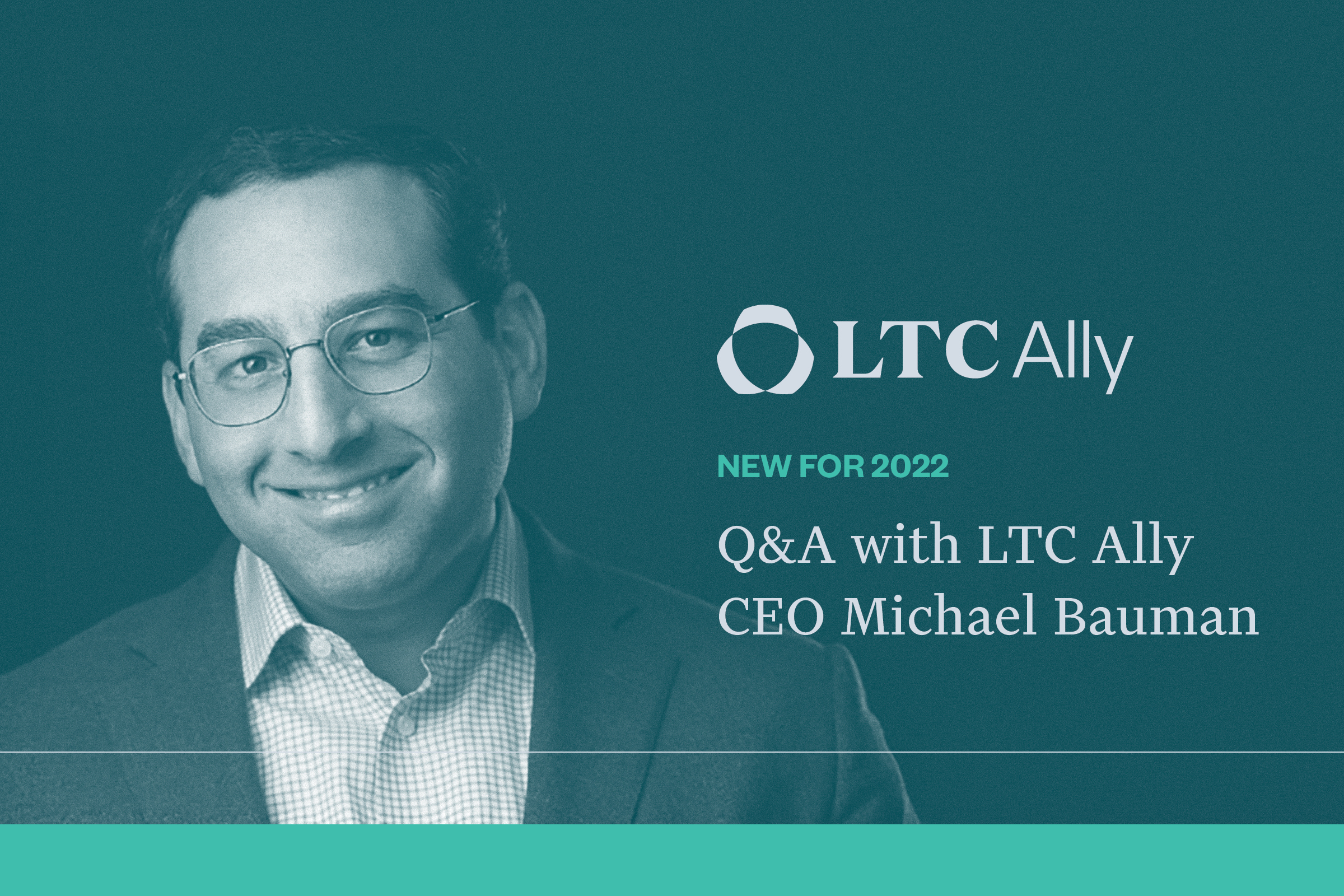We cover long-term care acquisitions, staffing issues, technology, and 2022 forecasts
With the unveiling of LTC Ally’s enhanced branding, it felt like the right time to sit down with co-founder and CEO Michael Bauman. He gives his insight into what lessons came from 2021 and forecasts for long-term care in 2022.
Q: 2021 was another year of ongoing challenges—staffing shortages, low census, changing vaccine mandates. How would you characterize last year for the LTC industry and LTC Ally?
Michael: What we learned is the government has strongly backed the industry, with stimulus money, employee credits, and such. This gave the industry confidence, knowing they have the support of the government, understanding the industry is here to stay.
When COVID first hit, people didn’t know how to handle it from an infectious disease perspective. People now know, and are better able to continue to deal with it.
Before 2021, when COVID first hit, the census was dramatically impacted. Two years on, facilities and operators are able to support themselves. With census returning, facilities are again turning a profit. Thankfully, none of our clients had to close their doors during this time. For facilities that did shut down, COVID was more the straw that broke the camel’s back, not the root cause.
Q: What do you make of operators implementing Institutional Special Needs Plans (I-SNPs)? Do you think they’re a robust solution for facilities?
Michael: There are a lot of different programs that seem to be very facility specific and highly dependent on treatment levels and patient mix. They seem to work well in certain environments and not as much in others.
All models are really important, and what I am seeing is we are getting smarter in deciding where patients belong and aligning that with their care needs. This is also reflected in a lot of the trends in mergers and acquisitions, where there has been a move toward consolidation around types of care.
Primarily what is happening is a smarter reshuffling that will lead to better patient outcomes.
Q: Do you think 2022 will be the year we move away from the staffing shortage, or will we see continued reliance on staffing agencies to fill the gaps?
Michael: Facilities have been using a lot of staffing agencies, but I think at some point people will want to go back to work. People are passionate about working in long-term care. If we, as an industry, can reduce the fear around the work environments, I anticipate people will be coming back to work.
The more outbreaks there are, people are realizing they can’t just hide from it and they need to make a living. The virus isn’t going anywhere and hiding isn’t a solution. I think this will translate into both employers and employees trying to find better and more permanent solutions for employment.
Q: Do you foresee any major changes in 2022 for long-term care?
Michael: I’m not aware of any immediate changes, but the industry is notorious for constantly changing. That said, recent changes have led to improvements in communication and collaboration, but I would be surprised if there were any additional reporting mandates at this time.
Managing clients and revenue cycle management has just become too difficult, and I’m seeing more people realizing the benefits of outsourcing to specialists.
Q: What are your predictions for 2022? What are you most excited about?
Michael: What I see happening in 2022 is more people figuring out how to work smarter, not harder. I know we are adopting a lot more automation and other systems for finances and revenue cycle management and I see this with other industry service providers and operators.
Data is so important and gives us incredible insights that can translate into real-time, actionable, direct improvements. Seeing where the industry has come from and how much has changed over the last few years, this is a very exciting time and I anticipate ongoing change and improvements.
People seem to be better at outsourcing different services to be more efficient and effective. Managing revenue cycle management has just become too difficult to do in-house, and I’m seeing more people realizing the benefits of outsourcing to specialists. Even operators who have an existing back office are outsourcing much more now in order to tap into a deeper pool of expertise and staff.
Here at LTC Ally, I see us continuing to leverage technology and combining that with our expertise to provide significantly more efficient and effective services at a lower cost with better outcomes. I’m really proud of the way we have scaled our functions to support our partners. Our services would cost significantly more elsewhere, or in-house.
A part of how we can be so efficient is that we have offices nationwide and workflow systems—we can tap into a larger employment market. Our workflow systems drastically improve the efficiency of practices, so we can process a lot more volume with fewer resources. Since we are larger than any individual operator, we offer automation, specialists, and improvements around eligibility, billing, and cash flow. This enables us to deliver better results for our partners.
LTC Ally Managing Partner and CEO, Michael Bauman is widely recognized as a premier authority on billing and cash flow in the field of medical billing and healthcare financial management. Michael Bauman joined forces with his partner and eventual COO Mark Josefovic and founded LTC Consulting Services, now LTC Ally. Bauman continues to innovate, drawing on his skills and experience in the analysis and collection of outstanding receivables. He constantly works to refine the company’s offerings to maximize efficiency and results.
Today, Michael Bauman continues to be involved in the strategic planning and operational oversight of the company and remains personally committed to the success of each client.
Learn more about how LTC Ally’s full-suite financial services can help your long-term care facilities thrive and grow.
